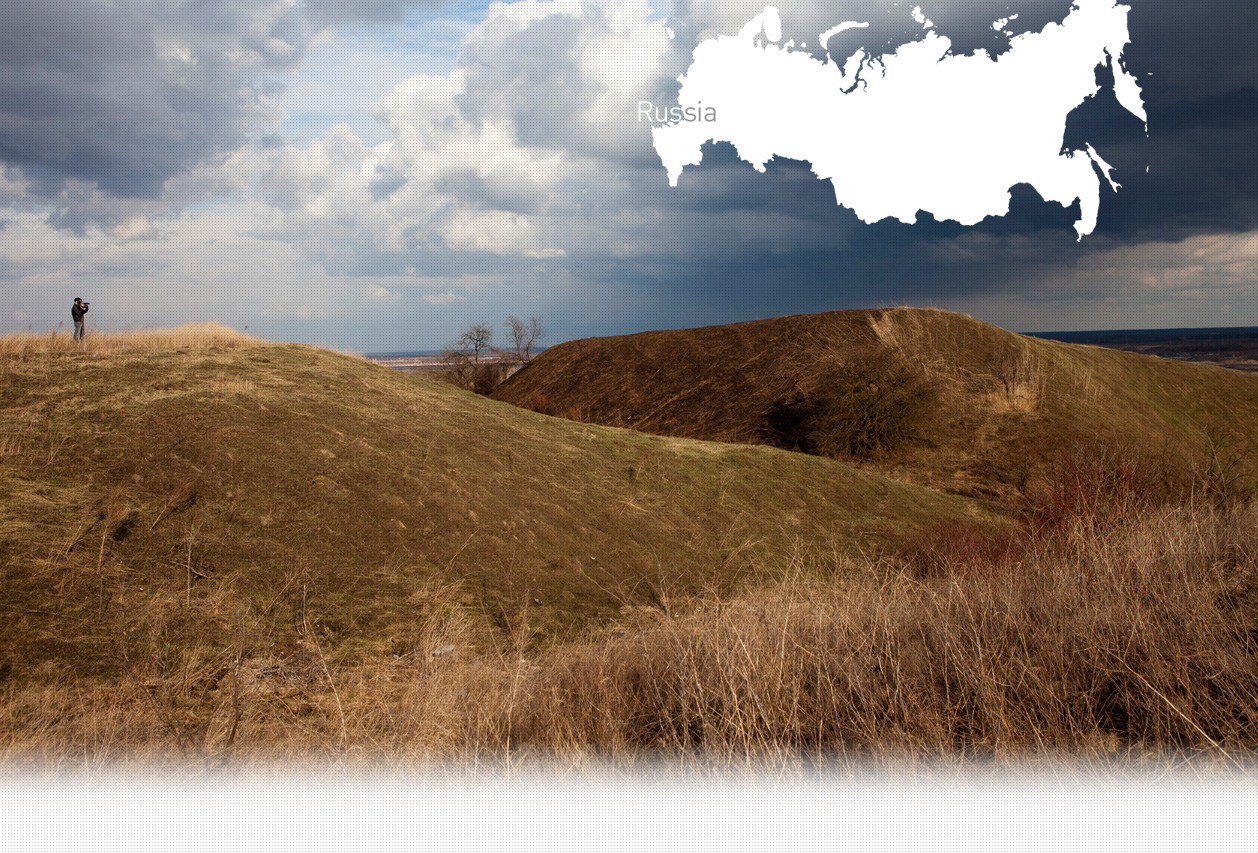

2 Execution site(s)
Vasilii M., born in 1927: “I was arrested with the Jews. We were put in a warehouse, there were so many people. You couldn’t lie down, it was very hot and the children were crying. I think the Jews knew they were going to be killed. Two Jewish girls were taken to the backyard and raped there, their breasts ripped off.” [YIU/300R, interviewed in Gulkevichi, on April 12, 2012]
Gulkevichi is a town in the Krasnodar region, southwest Russia. It is located about 150 km (93mi) northeast of the city of Krasnodar. It was founded in 1875 as a small settlement. Since it was outside of the Pale of Settlement, no Jews lived there, even after the Tsarist regime was overthrown. But when the war started between Russia and Germany in 1941, many Jews took refuge in the region. Circa. 200 Jews were in Gulkevichi before the Germans reached and occupied the town. Many settled in the former houses of the Volksdeutsche who had left, and even took their former cattle that they were unable to take with them. Most of them, however, were not trained in agriculture and were unable to work the land, according to one witness interviewed by Yahad - In Unum.
Several air raids took place when the Germans took over the town at the end of August 1942. A witness remembered seeing nine German planes. Many children died during the bombing while they were taking their cows to graze.
Soon after their arrival, the Germans rounded up all the Jews in town and took them to a field near the agricultural experimental station outside the town in trucks. There was a truck for men, one for women, one for children, and a mixed-one. There were about 20 to 30 Germans guarding the prisoners.
The victims had to undress once they were out of the truck. Anyone who tried to flee was shot on the spot then thrown into the pit. The Jews were shot in groups in front of the pit, men together, women together, and their bodies fell down into the pit once they had been shot. The children were not shot, but poisoned. They were grouped together, naked, standing in front of the pit. A German soldier carried a metal flask with poison. He went from child to child, rubbing the product on their lips. The children immediately collapsed and fell into the pit. The children were killed first, under their parents’ eyes. They were not allowed to say goodbye and any who tried to intervene was immediately shot.
According to a witness interviewed by Yahad - In Unum, another group of Jews was also shot at a different site after being rounded up and locked in a warehouse in the village. They were shot in a field and their bodies dumped into two wells nearby. Between 130 and 150 Jews were shot in Gulkevichi in 1942.
Do you have additional information regarding a village that you would like to share with Yahad ?
Please contact us at contact@yahadinunum.org
or by calling Yahad – In Unum at +33 (0) 1 53 20 13 17